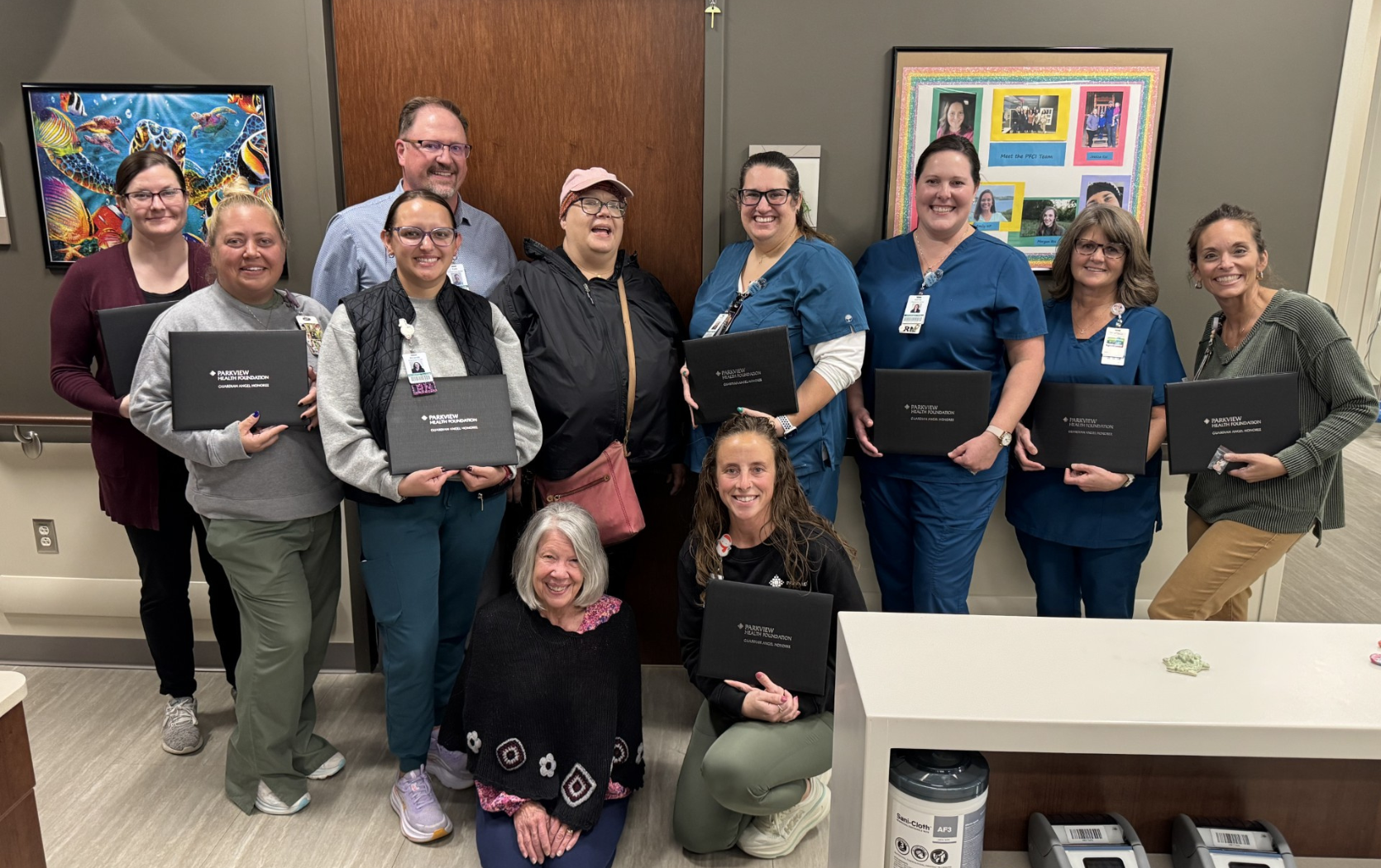
This post was written by Laura Oyer, PhD, HSSP, psychologist, Park Center, an affiliate of Parkview Behavioral Health Institute.
What is an eating disorder?
Eating Disorders are complex bio-psycho-social mental illnesses. Most people think of Anorexia Nervosa as the most common eating disorder, but Bulimia Nervosa and Binge Eating Disorder are more common. A myth often associated with these illnesses is that only young, white, thin, affluent females have eating disorders. This is completely inaccurate. Eating disorders affect people of all ages, genders, races, sexual orientations, body types and socioeconomic statuses. Eating disorders do not discriminate.
How common are eating disorders?
Believe it or not, eating disorders affect 1 in 10 people or 10% of our population. They are more common than Alzheimer’s Disease and Autism, are more deadly than drunk driving, and more costly than depression and anxiety.
What causes an eating disorder?
There is no single cause for eating disorders. Instead, various pieces make up the eating disorder puzzle. A few examples of these pieces include, but are not limited to:
- Biological factors (genetics and family history)
- Psychological factors (being a perfectionistic, sensitive to emotions and environment)
- Social factors (being bullied/trauma, living in a culture that overvalues thinness)
Are eating disorders biologically based or a product of lifestyle choices?
They’re both. Regardless of the eating disorder someone develops, it often starts with dieting. For whatever reason, someone restricts their calories and/or over-exercises, paired with certain biological factors and vulnerability, it could develop into an eating disorder. Therefore dieting, although encouraged in our culture, is often dangerous and can even be deadly.
What are the common warning signs of an eating disorder?
Some common warning signs of an eating disorder may include, but are not limited to:
- Spending a lot of time talking and focusing on food, weight, body or exercise
- Tracking food, calories and weight
- Happily cooking for others but not eating much themselves
- Eating more food than someone of their age would typically eat
- Having strict rules or rituals around eating
- Going directly to the bathroom after meals
- Experiencing extreme anxiety if the plan for food or exercise changes
- Always dieting or not being able to eat what others are eating
- Eating in secret or not eating around others
- Changes in body size
However, it’s important to use caution with this last warning sign. Many people who struggle with intense eating disorders don’t experience a change in their weight. They may have bodies that appear “normal” or even larger. It’s important to remember that weight does not determine the severity of someone’s eating disorder.
Who is most at risk for an eating disorder?
Because eating disorders occur in many types of individuals, it’s hard to identify who is most at risk. That said, Anorexia Nervosa and Bulimia Nervosa are more common in females than males. Binge Eating Disorder, however, is the most common eating disorder that occurs equally in men and women.
Members of the LGBTQ population, individuals who are sensitive and intuitive (meaning they feel deeply and are affected by their environment), and those who have experienced trauma or chronic stress are also more at risk.
What are the medical risks and complications of eating disorders?
Eating disorders are the second deadliest mental illness. Every 62 minutes, someone in the United States dies because of an eating disorder. There are many risks, and complications caused by eating disorders. More common ones include:
- Dizziness/Fainting
- Cognitive Impairment
- Osteopenia/Osteoporosis (loss of bone density)
- Mallory-Weiss Tears (tears in the esophagus’s lining, often resulting in bleeding)
- Boerhaave Syndrome (spontaneous esophageal rupture following forceful vomiting)
- Hypotension/Hypertension (high or low blood pressure)
- Hypoglycemia (low blood sugar)
- Edema (the accumulation of excessive fluid)
- Anemia (when the red blood cell count is less than normal)
- Extensive bloating
- Abdominal pain
- Heartburn/Reflux
- Electrolyte imbalance
- Dehydration
- Gastroparesis
- Pancreatitis
- Esophagitis
- Constipation
- Dry skin
What forms of treatment are available?
Since eating disorders are such complex illnesses, they are best treated with a multi-disciplinary treatment team that usually comprises an individual therapist, family therapist, dietitian, physician and psychiatrist. There are also different levels of care, depending on the amount of support an individual may need to make the required behavioral changes. These could include an Outpatient Program, an Intensive Outpatient Program (IOP), a Partial Hospitalization Program (PHP), and Residential, Inpatient or Acute program.
How can someone best support a friend or loved one with an eating disorder?
Since every person with an eating disorder is different, including their needs, it’s important to ask your friend or loved one how you can best support them. They may want you to help with food and accountability, or they may want you to be the comedic relief or just a listening ear when they’re struggling.
The Alliance for Eating Disorder Awareness, in partnership with Parkview Health, hosts free, weekly, clinician-led support groups for friends and family to learn more about how best to support their loved one. For more information, locations, dates and times please visit the Alliance support group page.
Park Center, an affiliate of Parkview Behavioral Health Institute, offers services for those struggling with eating disorders such as Anorexia Nervosa, Bulimia Nervosa and Binge Eating Disorder. If you or a loved one need support or treatment for an eating disorder, please call 260-481-2700 and request an Eating Disorder Initial Assessment. Your first appointment at a Park Center clinic in Fort Wayne will take 60-90 minutes and will include an evaluation and a discussion about treatment options.
For immediate mental health care concerns, call the Parkview Behavioral Health Helpline at 260-471-9440 or 800-284-8439 anytime 24/7.



